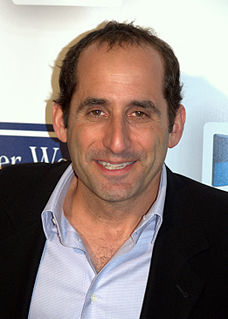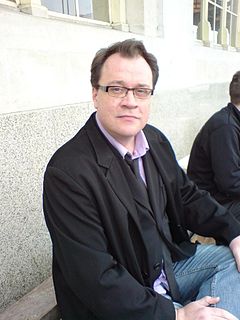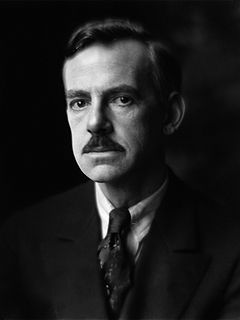A Quote by Richard Dawkins
After sleeping through a hundred million centuries, we have finally opened our eyes on a sumptuous planet, sparkling with color, bountiful with life.
Related Quotes
After sleeping through a hundred million centuries we have finally opened our eyes on a sumptuous planet, sparkling with color, bountiful with life. Within decades we must close our eyes again. Isn’t it a noble, an enlightened way of spending our brief time in the sun, to work at understanding the universe and how we have come to wake up in it? This is how I answer when I am asked—as I am surprisingly often—why I bother to get up in the mornings.
But what are a hundred million deaths? When one has served in a war, one hardly knows what a dead man is, after a while. And since a dead man has no substance unless one has actually seen him dead, a hundred million corpses broadcast through history are no more than a puff of smoke in the imagination.
We finally know where the red line for climate really is. After the rapid melt of arctic ice in the summer of 2007, our best scientists, led by NASA's Jim Hansen, went back to work and produced a series of papers showing that with more than 350 ppm (parts per million) of carbon dioxide in the atmosphere, we couldn't have a planet "similar to the one on which civilization developed and to which life on earth is adapted."
Some friends of mine in the class ahead of me in college were auditioning for graduate school in New York, and then a few of them got into Juilliard, and it sort of opened my eyes. I didn't really know anything about it, but it opened my eyes to a possible next step after school, where I could just deepen my knowledge and also not be responsible for life and stay in school.
Our population and our use of the finite resources of planet Earth are growing exponentially, along with our technical ability to change the environment for good or ill. But our genetic code still carries the selfish and aggressive instincts that were of survival advantage in the past. It will be difficult enough to avoid disaster in the next hundred years, let alone the next thousand or million. Our only chance of long term survival, is not to remain inward looking on planet Earth, but to spread out into space.
The Doctor: The Fourth Great and Bountiful Human Empire. And there it is: planet Earth at its height. Covered with megacities, five moons, population 96 billion. The hub of a galactic domain, stretching across a million planets, a million species. With mankind right in the middle. [Adam faints] The Doctor: [leans towards Rose, still looking out over the Earth] He's your boyfriend.
If we can avoid disaster for the next two centuries, our species should be safe as we spread into space. If we are the only intellegent beings in the galaxy we should make sure we survive and continue. . . . Our only chance of long-term survival is not to remain inward looking on planet Earth but to spread out into space. We have made remarkable progress in the last hundred years. But if we want to continue beyond the next hundred years, our future is in space.
The gravitational constant, if it were off by one part in a hundred million million, then the expansion of the universe after the Big Bang would not have occurred in the fashion that was necessary for life to occur. When you look at that evidence, it is very difficult to adopt the view that this was just chance.
The legislative job of the President is especially important to the people who have no special representatives to plead their cause before Congressand that includes the great majority. I sometimes express it by saying the President is the only lobbyist that one hundred and fifty million Americans have. The other twenty million are able to employ people to represent themand thats all right, its the exercise of the right of petitionbut someone has to look after the interests of the one hundred and fifty million that are left.
Annihilation has no terrors for me, because I have already tried it before I was born -a hundred million years -and I have suffered more in an hour, in this life, than I remember to have suffered in the whole hundred million years put together. There was a peace, a serenity, an absence of all sense of responsibility, an absence of worry, an absence of care, grief, perplexity; and the presence of a deep content and unbroken satisfaction in that hundred million years of holiday which I look back upon with a tender longing and with a grateful desire to resume, when the opportunity comes.
Of the four billion life forms which have existed on this planet, three billion, nine hundred and sixty million are now extinct. We don't know why. Some by wanton extinction, some through natural catastrophe, some destroyed by meteorites and asteroids. In the light of these mass extinctions it really does seem unreasonable to suppose that Homo sapiens should be exempt. Our species will have been one of the shortest-lived of all, a mere blink, you may say, in the eye of time.


































